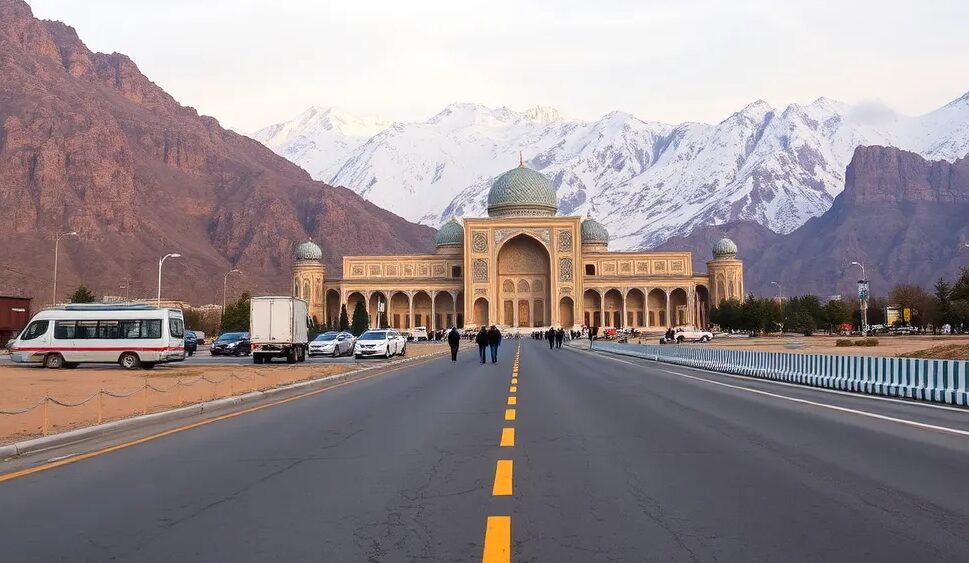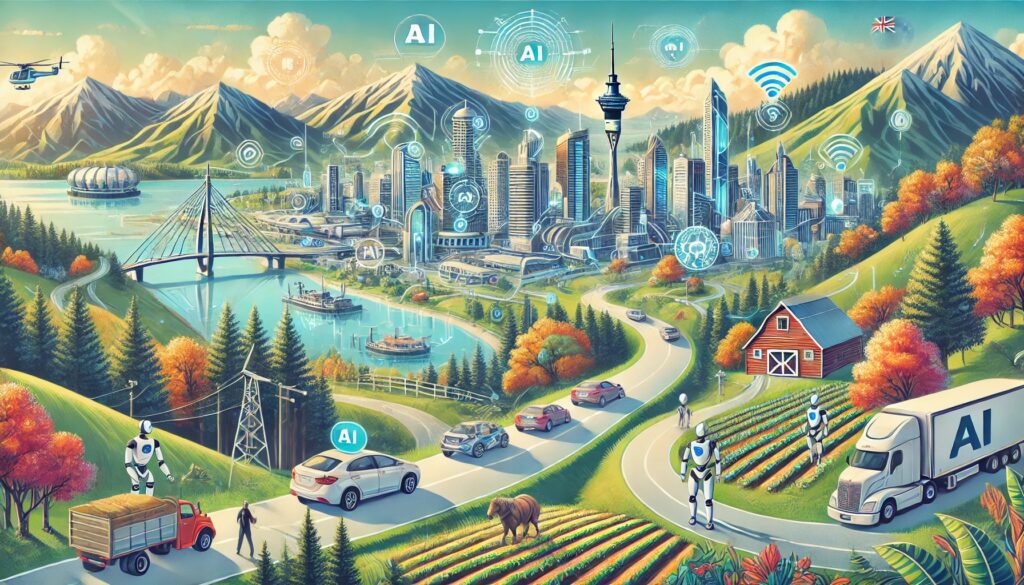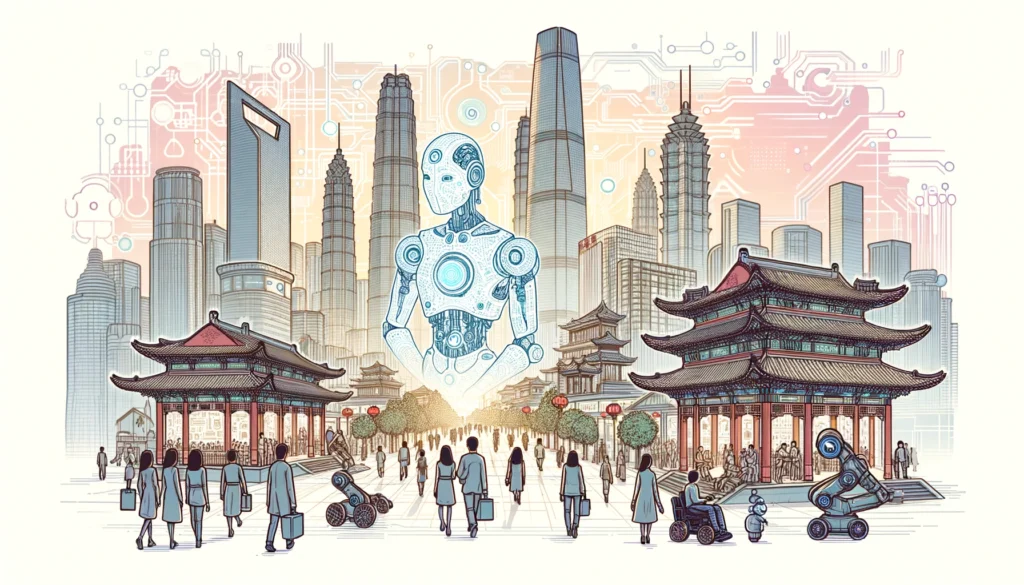
The Quiet but Powerful Rise of AI in Iran
Iran may not always make headlines for its technological advancements, but there’s something revolutionary stirring in the country: artificial intelligence (AI). While AI is disrupting industries globally, Iran is also starting to make its mark in a rapidly evolving landscape.
From tech-savvy startups to government initiatives, the AI revolution is beginning to reshape Iran’s economy, healthcare, and education sectors.
So, what exactly is fueling this change, and how is AI impacting everyday life in Iran?
Iran’s Tech Landscape: A Seedbed for AI Innovation
AI’s rapid adoption in Iran didn’t emerge out of thin air. Iran has been investing in its tech infrastructure for years, developing a solid base of skilled engineers and tech entrepreneurs.
Government initiatives, like the “Digital Iran” project, have bolstered the growth of tech startups, many of which are diving into AI research. AI hubs like the Sharif University of Technology have become breeding grounds for new talent, collaborating with both private and public sectors. It’s clear that Iran has the human capital and ambition to lead the AI charge.
How AI is Disrupting Iran’s Traditional Industries
While oil may still dominate Iran’s economy, AI is starting to carve out its own space, particularly in industries such as agriculture, energy, and manufacturing. Iranian businesses are embracing automation, machine learning, and AI-driven analytics to cut costs and increase productivity.
For example, smart farming is helping farmers optimize water usage in drought-prone areas, boosting yields and combating climate challenges. Similarly, the oil industry is adopting AI for predictive maintenance and optimizing refinery processes, breathing new life into an otherwise traditional sector.
AI and Healthcare: A Life-Changing Intersection
One of the most exciting areas where AI is making a huge difference in Iran is in healthcare. Imagine a future where AI helps diagnose diseases faster than a doctor can—or where predictive models analyze medical records to recommend personalized treatments for patients.
Already, AI is being used in radiology and pathology to interpret complex medical data with greater accuracy. Telemedicine has seen growth, allowing patients in rural areas to access AI-powered medical consultations that would have been impossible just a few years ago.

Education Meets AI: A New Frontier for Learning
Iran’s education system is also undergoing a transformation thanks to artificial intelligence. With a young, tech-savvy population, digital learning platforms powered by AI are becoming more common.
Adaptive learning systems now offer personalized learning experiences, tailoring content to individual students’ needs. This is especially beneficial in rural regions, where access to quality education has been a challenge. Additionally, AI-driven language models help bridge gaps in language learning, an important skill in a country with a long history of scientific and intellectual exchange.
Government Policies and AI: Pushing for a Technological Future
Iran’s government has not been shy about its desire to position the country as a leader in the AI field. It’s been investing heavily in research and development, establishing national policies aimed at fostering a local AI ecosystem.
For instance, the Supreme Council of Cyberspace and the Vice Presidency for Science and Technology have been critical in pushing AI-friendly regulations. These efforts have ensured that Iranian researchers have the resources and support they need to stay competitive globally.
Iranian Startups Leading the AI Revolution
While many large companies are dipping their toes into AI, it’s really the startups that are driving innovation. In cities like Tehran and Isfahan, young entrepreneurs are leveraging AI to build smart apps, automation tools, and even robotics solutions that could soon be exported globally.
Startups are working on everything from AI-powered marketplaces to logistics optimization platforms, all of which have the potential to create significant economic impact. Iran’s tech ecosystem, though still developing, is quickly becoming a fertile ground for AI-related breakthroughs.
Challenges Facing Iran’s AI Expansion
Despite the promising growth, Iran faces significant hurdles in its AI revolution. One major challenge is international sanctions, which limit access to critical technologies and funding.
Moreover, the brain drain phenomenon—where top talent leaves the country in search of better opportunities abroad—poses a significant challenge. While Iran produces a large number of highly educated AI experts, retaining them within the country is becoming increasingly difficult.
The Role of Women in Iran’s AI Scene

Interestingly, women are playing a substantial role in Iran’s AI ecosystem. Despite traditional gender roles and cultural constraints, a significant percentage of AI and tech students at top Iranian universities are female.
Women in tech are starting their own AI-driven companies and working in leadership roles across various industries. This rise of women in AI is slowly changing the face of tech in Iran, bringing new perspectives and innovative ideas into the mix.
The intersection of gender, AI, and technology in Iran is a complex and evolving space. While the AI industry offers the potential for economic and social advancement, the current political climate presents significant barriers. Women’s growing involvement in STEM fields and their contributions to AI could play a crucial role in shaping Iran’s technological future, but systemic change is needed to fully realize these opportunities
— APA Blog
AI in Everyday Life: How Iranians Are Already Benefiting
AI isn’t just reserved for tech companies or medical professionals in Iran—it’s already starting to change everyday life for ordinary people. For instance, AI-powered apps are helping people with tasks like navigating traffic, shopping online, and booking healthcare appointments.
Chatbots, powered by machine learning, have become more common in customer service, especially in industries like retail and telecommunications. The convenience AI offers is slowly but surely transforming how people live, work, and interact in Iran.
The Cultural Shift: AI and Iranian Society
As AI weaves itself deeper into Iran’s technological fabric, it’s also starting to influence culture and societal norms. The country has long been known for its rich history in science, mathematics, and engineering, dating back to ancient Persian scholars. Now, AI is the latest chapter in this legacy, and it’s changing the way people think about the future.
In urban areas like Tehran, AI-powered social platforms are becoming increasingly popular, reshaping the way people connect and share ideas. Beyond just social media, AI tools are also being integrated into cultural activities, from virtual reality museums to AI-enhanced art. This cultural evolution shows that AI is not only about technical progress—it’s impacting creativity, tradition, and how Iranians see themselves in a global context.
Ethical Concerns: AI and Privacy in Iran
As AI technology becomes more pervasive, concerns about privacy and data security are growing in Iran, much like in other parts of the world. AI systems rely on vast amounts of data to function, and there’s a growing debate over how this data should be collected, stored, and used.
In Iran, where government oversight of the internet and technology is already high, there are concerns that AI could be used for surveillance purposes. AI’s role in facial recognition and monitoring systems could potentially raise ethical issues, especially if used without transparent regulatory frameworks. This has led to a call for stronger AI ethics guidelines to ensure that the technology benefits society without infringing on individual freedoms.

AI in Iran’s Entertainment Industry
AI is also making waves in Iran’s growing entertainment industry. From film production to music, AI tools are helping creators push the boundaries of what’s possible. For instance, AI can assist in generating scripts, editing films, or even composing music, saving both time and resources.
Iranian filmmakers are known for their innovative approach to storytelling, and with AI, they now have new tools at their disposal to create more visually stunning and compelling narratives. While AI can’t replace human creativity, it’s increasingly becoming a powerful ally in the creative process, allowing artists to focus on the core of their craft while AI handles the more tedious tasks.
AI and the Future of Work in Iran
One of the biggest questions surrounding the rise of AI in Iran is its impact on the future of work. Automation and machine learning are expected to replace many traditional jobs, especially in sectors like manufacturing, agriculture, and logistics. However, this disruption could lead to the creation of new, AI-driven jobs that didn’t exist before.
Iran’s labor market is already seeing a shift toward more tech-focused roles, with a growing demand for data scientists, AI developers, and machine learning engineers. To meet this demand, there’s a push for re-skilling programs that train workers to adapt to the AI era. The key challenge for Iran will be how to manage this transition to ensure that economic growth continues without leaving a large portion of the population behind.
AI and Environmental Sustainability in Iran
Another exciting area where AI is making an impact is in environmental sustainability. Iran faces significant environmental challenges, particularly in terms of water scarcity and air pollution. AI is playing a crucial role in addressing these issues by helping to develop smarter, more efficient ways to manage resources.
For example, AI-powered climate models are being used to predict and manage drought conditions, while machine learning algorithms optimize water usage in agriculture, Iran’s largest water-consuming sector. Additionally, AI is helping to improve energy efficiency in urban planning and development, potentially reducing the country’s carbon footprint.
By incorporating AI into its environmental strategies, Iran is not only solving immediate issues but also laying the groundwork for a more sustainable future.

Iran’s AI Roadmap: What’s Next?
Iran’s AI journey is still in its early stages, but the potential is vast. The government has set ambitious targets to become a regional leader in AI, with plans to invest more in AI research and development, particularly in collaboration with universities and the private sector.
Iranian policymakers are increasingly aware that in the global race for AI dominance, there’s no room to lag behind. This has led to the creation of long-term AI roadmaps focused on increasing innovation, improving education, and fostering international partnerships. With the right support and investment, Iran could become a key player in the global AI ecosystem.
International Collaboration and AI
While international sanctions have posed challenges to Iran’s access to cutting-edge technology, there are still avenues for collaboration in AI. Iranian universities and tech companies have been working with international partners, particularly in the realms of research and academic exchange.
As AI is a global phenomenon, countries often need to share knowledge and resources to make breakthroughs. Iranian researchers are contributing to the broader AI community through open-source projects and joint ventures with institutions from Europe and Asia. These collaborations help Iran stay connected to the rapidly evolving world of AI, despite geopolitical barriers.
Final Thoughts: AI as a Catalyst for Change in Iran
The AI revolution in Iran is more than just a technological shift; it’s a catalyst for change across society. From reshaping industries to improving quality of life, AI is influencing every facet of Iranian life. The challenge will be balancing the incredible opportunities AI offers with the ethical, social, and economic hurdles it creates.
Iran’s unique blend of historical intellectual heritage, tech-savvy youth, and emerging AI ecosystem positions it well to make significant strides in the coming years. It’s a revolution that, although still in its infancy, has the potential to redefine Iran’s future.
References & Resources
- Sharif University of Technology: A leading research institution in Iran, known for its contributions to AI research and development.
- Digital Iran Initiative: Government project aimed at enhancing Iran’s digital infrastructure and fostering technological growth.
- Vice Presidency for Science and Technology: A key government body responsible for policy-making in science and technology, with a focus on AI.
- AI in Agriculture: Detailed insights on how AI is being applied in agriculture, particularly in optimizing water use and improving crop yields.
- AI in Healthcare: Emerging AI technologies in healthcare, including telemedicine and AI diagnostics in radiology.
- Supreme Council of Cyberspace: The body responsible for creating policies to govern AI, privacy, and cybersecurity in Iran.
- Startups in Iran: Information on the growing number of AI-driven startups, particularly in Tehran and Isfahan.
- AI and Women in Tech: Studies and reports focusing on the increasing role of women in Iran’s AI and tech industries.





